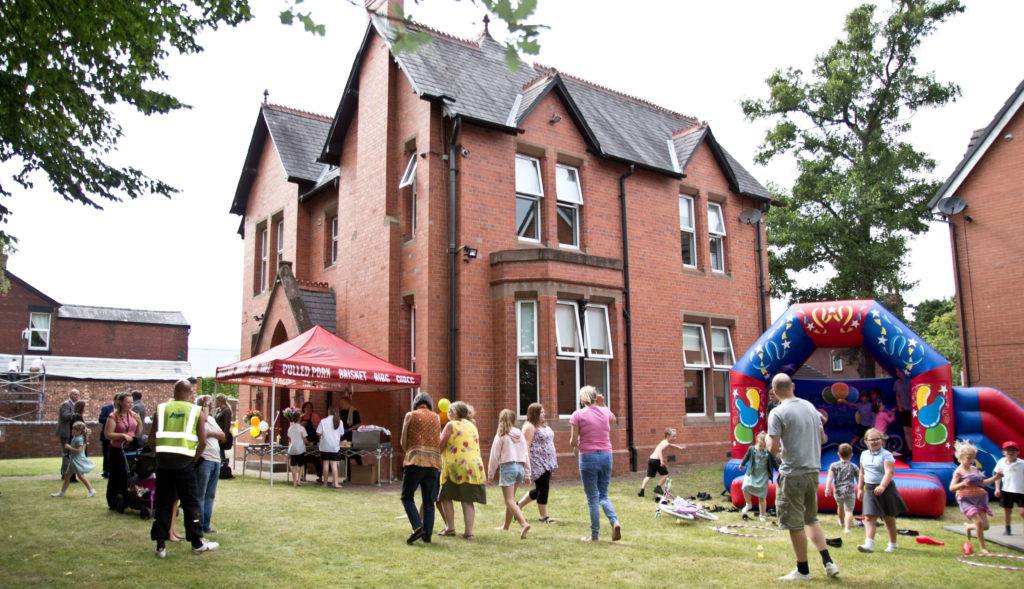The chief executive of the Independent Children’s Home Association (ICHA), Peter Sandiford, recently said that children who require care away from their families are treated as “criminals rather than victims”, with applications to build new care homes regularly met with hostility by nearby residents.
His comments certainly grabbed headlines and thrust the ICHA into the media spotlight. But this was no PR ploy on the part of the association. Sadly, this issue runs far deeper than the column inches it generated in the national press. Too often, as a business, we see hostility from local residents when setting up a new children’s home and, for that matter, specialist adult provision. We firmly believe, like many, that these children and vulnerable adults have every right to be treated fairly and equally.
Author and poet, Lemn Sissay, couldn’t have put it better when he said that having a children\’s home in your area should be something people want – it’s “a sign of caring for the most vulnerable in society, a sign of kindness”.
As Sissay strongly points out, instead we revert to “unchallenged prejudices”, when what we need is to educate society on the importance of safe, nurturing and secure environments for some of our most vulnerable youngsters – a place that harnesses the true values of a family, inspires and supports them and, ultimately, provides them with the foundations to build a meaningful and fulfilling future, which every child and young person deserves.
While the comments from the ICHA come as no surprise, it has brought some important issues to the fore and highlighted the ongoing problems that many providers face on a daily basis. We spoke to some of our business community about the challenges they have had to overcome when delivering support to vulnerable young people.
Alison Moore is managing director at Juventas Services – a provider of specialist and bespoke residential care for young people aged from 10 to 18. She commented: “I have worked in the care sector for many years and have witnessed stigma and judgement faced by young people in care. Unfortunately, due to a lack of information available to the general public, assumptions are made about young people in care.
“Some, not all, assume young people are in care because they are criminals when, the reality is, they are placed in care for a multitude of reasons, none of which are related to criminality. In fact, our young people are some of the most vulnerable children in society.
“In the past, I have experienced substantial problems from neighbours with daily complaints emanating from nothing – simply because some members of our community do not want a children’s home on their doorstep due to the stigma attached. However, we have also experienced real compassion and support from neighbours who understand our children need love and support from the wider community. In some instances we have received gifts from neighbours at Christmas time, as well as our young people becoming involved in the community by supporting neighbours with things like gardening and car washing.”
She continued: “It’s vitally important that our children and young people have a role to play in the wider community because let’s not forget our children have a part to play in our communities of the future.”
Wayne Price, operations director at Dimensions Care, agrees. He said: \”Children\’s homes and organisations often receive negative press, which in turn means communities will only receive a negative view.
“It’s up to everyone to educate communities, raise awareness, and be open about the positive aspects of what a children\’s home can bring to those young people who need to be cared for. When there’s understanding from people within communities, there tends to be a wave of support, kind gestures and a want to help. Awareness and communication are key to supporting these issues, providing people with a greater understanding of what a children\’s home actually is and the positive impact it can have on children and those who support them.\”
“Children come into care for a number of reasons and often will have experienced trauma,” explains Belinda Cashman, operations director at CFS Care. “Children need understanding, compassion and care. As such, we believe it’s important to form positive, meaningful relationships with the children and young people we care for.
“Hearing children being stereotyped in this way is unhelpful and has a real impact on their health and well-being. In addition, we already know that the outcomes of children and young people once they leave care are still behind their peers.
“As an organisation we do link in with our local communities,” says Belinda. We speak with our neighbours and share experiences. We want children to be able to stay where possible close to their families, school, friends and communities as we know this helps make a difference.
“On 18th February, Care Day is being celebrated to shine a light on the successes and achievements of children and young people with care experience. This year’s theme is “Together we create community”. When we think about children being supported, it really does take a village to raise a child. It’s not just about what happens in individual households, but within the streets they live on and the local neighbourhood. We want communities to welcome their children and play a part in being positive role models.”


